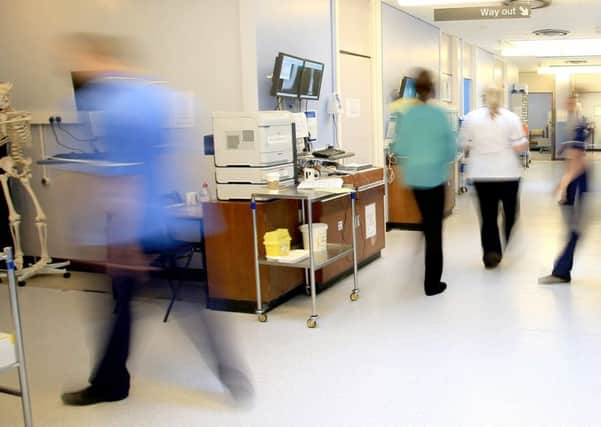Jayne Dowle: Volunteering drive not the best medicine for our NHS


Please don’t get me wrong. I have the utmost respect for those who give their time willingly and freely to local hospitals. The estimated 78,000 individuals who already volunteer, running hospital shops, serving teas and sandwiches and taking the library trolley round the wards provide a valuable service that is very much appreciated by the people who matter; the patients.
And their families. I was reminded of this only last week, when I found myself in the A&E department of our local hospital in Barnsley with my partner, who had suffered a minor accident at work. As I stood in the queue to buy us a proper cup of tea, I watched two ladies show a young man who seemed to have learning difficulties how to serve the customers.
Advertisement
Hide AdAdvertisement
Hide AdAs it usually does in these circumstances, my mind wandered. I imagined that this young man would gain confidence from his work. Perhaps his experience would help prepare him for paid employment in the future.
In some idealistic future version of myself, I often think that I would like to volunteer in a hospital too. I’m not sure if the good ladies of the Royal Voluntary Service would let me loose with the teas and sandwiches, but I reckon I could be trusted to sort out the library books for them.
However, this latest drive, spearheaded by a national newspaper, seems wrong to me. The whole point of volunteering is that it should be a choice, made freely. Those who volunteer should never be coerced into it by guilt, nor expected to carry out jobs and roles which by rights, should be done by paid professionals. A new study by the health think-tank, The King’s Fund, finds that an overwhelming majority of healthcare workers are supportive of volunteers. At least 90 per cent felt that volunteers improved patient experience by bringing ‘human kindness’ to busy hospitals. In addition, 74 per cent also said that they helped to relieve pressure on professionals.
Sorry for being idealistic, but if the NHS was effectively funded and properly staffed already, surely human kindness would not be lacking and professionals would not be under constant demand. It seems to me that to some extent, this recruitment drive is plugging gaps which really shouldn’t exist in the first place.
Advertisement
Hide AdAdvertisement
Hide AdAlso, whilst it brings a warm glow as Christmas approaches, what about the situation going forward? Well-meaning or not, aren’t we in danger of sending entirely the wrong message to the government? If volunteers are happy to step in to help feed patients at their bedside, for example, does this mean that such duties no longer need to be covered by a salaried employee? And what of the salaried employees? Have they been given enough training to ensure that they can work effectively alongside volunteers and direct them without patronising and potentially alienating those offering their services for free?
Richard Murray, director of policy at the King’s Fund, does actually warn that hospital volunteers should not be used as a substitute for paid staff. The report authors also say there needs to be clear boundaries between the cross-over of volunteers and professionals.
Having worked with volunteers in various capacities, I’d second this. For every 99 selfless individuals who just want to pitch in and give something back, there is always one who thinks they know best, even if their previous experience gives them little qualification or authority. I’d say that a transparent chain of command needs to be a priority in every instance. Otherwise there’s the risk of adding yet another layer of bureaucracy to an already burdened NHS management structure.
There also need to be efficient checks and scrutiny of potential volunteers to ensure patient safety. A well-meaning volunteer with no formal training in say dementia care or substance abuse could say entirely the wrong thing to a patient and set back treatment considerably.
Advertisement
Hide AdAdvertisement
Hide AdI’ve struggled personally with the concept of volunteering many times. Over the years, I’ve happily given up time to lend my own professional skills. I’ve edited local history books for free and still do talks and workshops with groups and gatherings in church halls and community centres, when I donate any fee to charity. I’ve sat as an unpaid board member for a museum and contributed as an independent voice for our local council’s regeneration scrutiny committee. And I was brought up in a mining community where nobody did anything for ‘nowt a yard’, as my dad puts it. Yet really, all of what I have ever offered of myself amounts to not much more than entertainment or enhancement.
It’s never been a matter of life and death. And volunteering should stay that way.